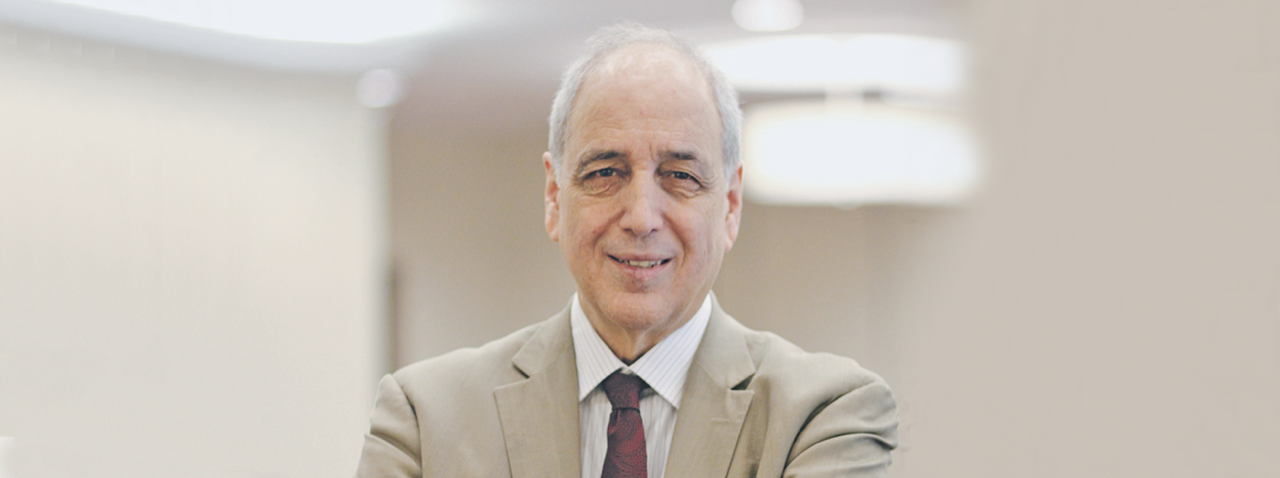
Michael Lynk is an associate professor at Western University’s Faculty of Law, where he has taught courses in labour, human rights, disability, constitutional and administrative law since 1999. He has served as a labour arbitrator for two decades and as a vice-chair and arbitrator with the Ontario Grievance Settlement Board since 2007.
Why have you been focusing much of your time over the past year on your paper Academic Freedom and the Scope of Intramural Expression in Canadian Labour Law?
One of the things we don't have a lot of here in Canada are academic writings about labour law, and where academic freedom fits in that sphere. A couple of years ago, I remember reading a case that came out of the University of Ottawa involving a physics professor, and it was one of the first times I had read an academic freedom case. I'd never dealt with them when I was at practice as a union side labour lawyer and I'd never dealt with them as a labour arbitrator, either. But it made me realize — it was a big revelation to me, though I'm sure it's not so surprising to grievance officers with faculty associations — that in Canada, academic freedom is all tied up with labour law.
How do you encapsulate what you mean by academic freedom within a labour law setting in Canada?
There are two parts. The first is that the university is a workplace that is hierarchical, where orders or directives are given, and we workers, in a general way, follow them. But the second is equally important, and this is the area where we all need to do a little more thinking and digging, and push the envelope forward. We are workplaces of a special sort, with academic freedom in place with its four primary features: the freedom to teach, to research and publish, and of intramural and extramural expression. Those four freedoms are found, I believe, in virtually all academic staff association collective agreements. The only constraints are defamation, hate speech, incitement to violence, harassment, discrimination, breaches of confidentiality and privacy, and interference with the expressive rights of others.
Is there a problem in how academic freedom is protected in Canada by collective agreement language?
Only in that we are not doing as good a job as we can when we go to labor arbitration to argue expansive, dynamic, vivid definitions with respect to that. In many countries, strictly in Europe as well as in the US, the primary method for protecting academic freedom is through either a constitutional provision or in legislation. In several countries, including the European Union itself and South Africa, it's through the constitution that academic freedom is actually embedded into the law. The Canadian Constitution, by contrast, is silent on this, as is Canadian legislation. So consequently we rarely see academic freedom being litigated in the courts because it’s protected almost entirely in Canada through collective bargaining and collective agreements.
How can faculty associations improve their defense of a robust definition of academic freedom?
The fact that we can bargain the language and then litigate the language gives us a much greater advantage over other jurisdictions where they have to go to distant courts with a lot less familiarity, a lot less feel for industrial relations culture, than arbitrators have in Canada. I can cite a few seminal Canadian cases where arbitrators support robust academic freedom, but the problem is that their general statements of support haven't always been followed through by other Canadian arbitrators Intramural speech is the freedom of academics to criticize their institution for practices or policies or the absence of actions on the university campus, without suffering institutional censorship of any sort. This right originated from a variety of legal and policy sources, including in part, from the development of a definition of academic freedom in the US fostered by the American Association of University Professors, and in particular, from a seminal 1997 UNESCO recommendation concerning academic freedom and the status of higher education teaching personnel in which CAUT played a leading role. In my ongoing review of arbitration decisions in Canada with respect to academic freedom and particularly with this topic of intramural expression, I have never seen any reference by any arbitrator to the UNESCO statement, which may mean that trade union lawyers who represent faculty associations are probably not familiar with this statement and how to use it in effective advocacy in these kinds of cases.
Is language in collective agreements defending academic freedom improving?
I've seen a steady improvement and a parsing of the academic freedom language that’s been negotiated. Academic unions are learning from their mistakes, and over the course of these rounds of negotiations, they're improving, enhancing and raising the standard of protection provided by this.